About UnityPoint Health Meriter New Start Program for Addictions South Park Street
The New Start Program for Addictions at UnityPoint Health Meriter provides a comprehensive approach to addiction treatment. We offer a variety of services to meet the unique needs of our patients, including alcohol rehab, dual diagnosis, opioid addiction, adult program, men’s rehab, women’s rehab, young adult rehab, detox treatment, inpatient rehab, aftercare support, cognitive behavioral therapy, dialectical behavior therapy, family therapy, individual therapy, and trauma therapy. We are committed to providing the highest quality care to our patients and their families, and we hope that you will choose us for your addiction treatment needs.
Addiction Treatment Programs
Alcohol Rehab
If you’re struggling with your alcohol use, consider an alcohol rehab in Wisconsin. Whether you need detox, inpatient treatment, or outpatient care, an alcohol program will help you build a new lifestyle based on healthy coping mechanisms, better relationships, and a new way of thinking about life.
Dual Diagnosis
If you have both a mental health condition and substance use disorder, you need dual diagnosis treatment in Wisconsin to address both issues together. Whether you need detox, inpatient treatment, or outpatient care, a dual diagnosis program will offer specific support for your mental health needs alongside traditional substance use treatment.
Opioid Addiction
If your life has been negatively impacted by opioid addiction, a high-quality rehab in Wisconsin can help. During this program, you’ll work with professional counselors to deal with the psychological, emotional, and physical issues that opioid misuse can cause. Over time, you’ll learn how to live without substance use long-term.
Adult Program
An adult program in Wisconsin can help clients make healthier life choices and avoid common mistakes. Whether you need detox, inpatient treatment, or outpatient care, an adult program will offer specific support for your emotional, mental, and social needs.
Men's Rehab
When people join a men’s rehab in Wisconsin, they are able to tackle gender-specific issues while receiving treatment. Whether you need detox, inpatient treatment, or outpatient care, a men’s program will offer specific support for your emotional, mental, and social needs.
Women's Rehab
A women’s rehab in Wisconsin can provide every level of care while addressing the unique needs of women. Whether you need detox, inpatient treatment, or outpatient care, a women’s program will offer specific support for your emotional, mental, and social needs.
Young Adult Rehab
If you’re a young adult struggling with substance use, consider a young adult rehab program in Wisconsin. Whether you need detox, inpatient treatment, or outpatient care, a young adult program will offer specific support for your emotional, mental, and social needs.
Insurance Coverage
Medicaid
How do you pay for rehab in Wisconsin? If you qualify, a good option is Medicaid. Medicaid covers multiple levels of care, and you may have no out-of-pocket costs. However, you’ll need to choose a treatment center that accepts Medicaid.
Private insurance
There are many ways to pay for rehab in Wisconsin. One option is private insurance. Different plans have different coverage levels, so be sure to check with your insurance company for details. You may be responsible for certain costs, such as copayments and deductibles.
Self-pay options
In Wisconsin, you have multiple options for paying for rehab, one of which is self-pay. When you use a medical loan, write a check, or electronically transfer money, you have maximum freedom in choosing the treatment center you prefer.
Financial aid
Those wondering how to pay for rehab in Wisconsin may benefit from looking for financial aid programs. Paying for detox, inpatient rehab, or outpatient care is much easier if you get a grant or scholarship from the center or a local non-profit or community organization.
Medicare
Paying for rehab in Oklahoma can be done in multiple ways, including using Medicare. You may have out-of-pocket costs such as a deductible or copay, and you’ll want to look for a treatment center that accepts your Medicare coverage.
Military insurance
If you have military insurance in Wisconsin, you can use your coverage to help pay for rehab treatment. Because plans vary, be sure to contact the insurer to find out what centers are in-network with your coverage and to find out what out-of-pocket costs you might be responsible for.
Levels of Care
- 1
Detox Treatment
During detox in Wisconsin, you’ll be monitored as the substances leave your system. Then you can start fresh and create a new life. Most detox programs last around one week, although some are longer. You will generally receive medical treatment for withdrawal symptoms as well as treatment planning for the next stage of rehab.
- 2
Inpatient Rehab
During inpatient treatment in Wisconsin, clients receive evidence-based treatment while living full-time at the facility. During inpatient treatment, clients are able to work on their recovery through counseling, activities, and holistic treatment like mindfulness, art therapy, and more.
- 3
Aftercare Support
It’s easy to wonder what’s next after treatment, but fortunately, aftercare in Wisconsin can provide ongoing support. Some aftercare programs will help you connect to community resources and social services in your area, from housing to healthcare to financial assistance.
Therapies
Cognitive Behavior Therapy
The goal of cognitive behavioral therapy (CBT) in Wisconsin is to address negative thinking patterns to create positive change. Substance use treatment includes detox, inpatient treatment, and outpatient care, and CBT may be a part of each of these stages. The goal is to help clients identify disorted thinking, replace it with rational thinking, and change their response accordingly.
Dialectical Behavior Therapy
The goal of dialectical behavioral therapy (DBT) in Wisconsin is to help you recognize your strengths and embrace your ability to create positive change. Substance use treatment includes detox, inpatient treatment, and outpatient care, and DBT may be a part of each of these stages. The goal is to help clients develop the skills they need to solve the problems they face without substance use.
Family Therapy
Family therapy in Wisconsin can address conflicts in your family so your loved ones can help provide encouragement, support, and accountability as you work through substance use treatment. There are several goals in family therapy. Some sessions may be focused on specific past events, while others address current broken relationships or how good intentions have gone astray. Over time, family relationships can be restored, making recovery easier.
Individual Therapy
During individual therapy in Wisconsin, clients have a confidential environment to work through their struggles with a professional. Some of the topics covered in individual therapy include developing healthy coping skills, addressing past events that may have played a part in substance use, and building a support network.
Trauma Therapy
Talking about what you’ve been through and how it impacted you is an important way to heal, and trauma-informed therapy in Wisconsin gives you that opportunity. Both inpatient treatment and outpatient care can include trauma-informed therapy, which helps you create a feeling of safety, access peer support, embrace the validity of your feelings, and create healthy coping skills.
Accreditations
Location
Contact UnityPoint Health Meriter New Start Program for Addictions South Park Street
Top Drug Rehab Centers in Wisconsin
-
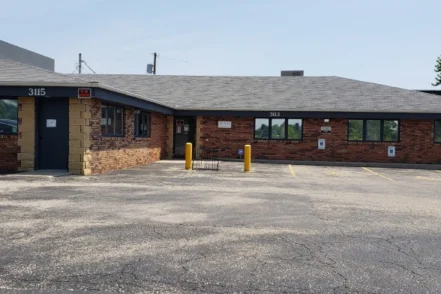 Wisconsin
WisconsinPsychological Addiction Services
3113 East Washington Avenue Madison, Wisconsin 53704
-
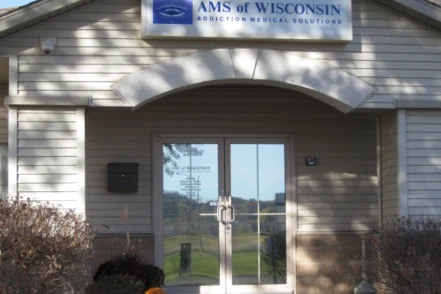 Wisconsin
WisconsinAMS
9532 East 16 Frontage Road Onalaska, Wisconsin 54650
-
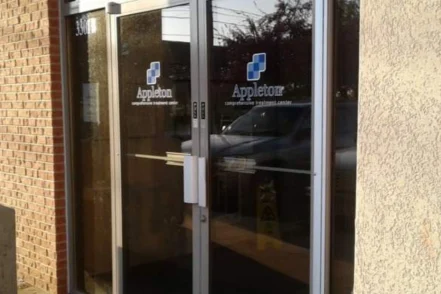 Wisconsin
WisconsinAppleton Comprehensive Treatment Center
3301 North Ballard Road, Suite B Appleton, Wisconsin 54911
-
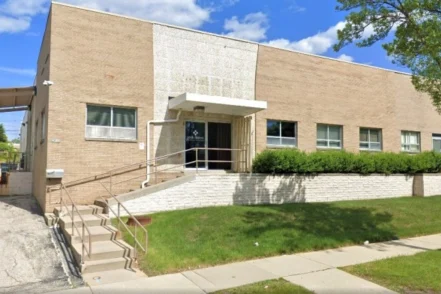 Wisconsin
Wisconsin10th Street Comprehensive Treatment Center
4800 South 10th Street Milwaukee, Wisconsin 53221
-
 Wisconsin
WisconsinWisHope Recovery
4739, 223 Wisconsin Ave, Suite A Waukesha, Wisconsin 53186
-
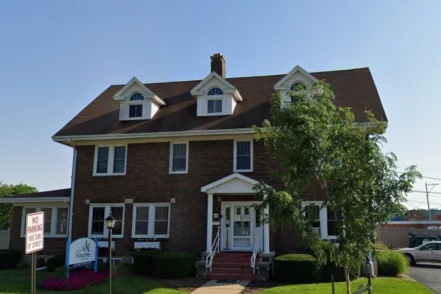 Wisconsin
WisconsinJackie Nitschke Center Inc
630 Cherry Street Green Bay, Wisconsin 54301
-
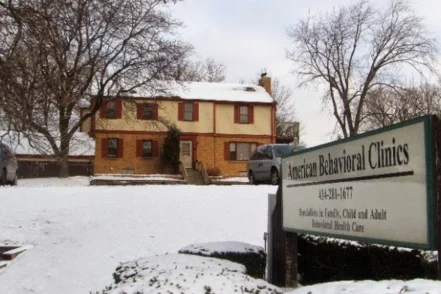 Wisconsin
WisconsinAmerican Behavioral Clinic West Layton Avenue
7330 West Layton Avenue Milwaukee, Wisconsin 53220
-
 Wisconsin
WisconsinBlandine House 25 North Park Avenue
25 North Park Avenue Fond du Lac, Wisconsin 54935
-
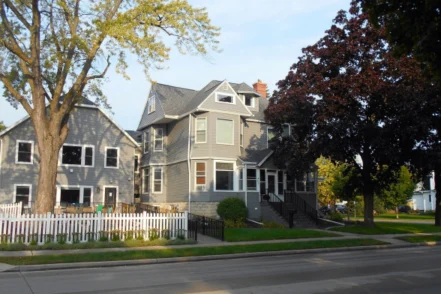 Wisconsin
WisconsinBeacon House
166 South Park Avenue Fond du Lac, Wisconsin 54935
-
 Wisconsin
WisconsinBurkwood Treatment Center
615 Old Mill Road Hudson, Wisconsin 54016


